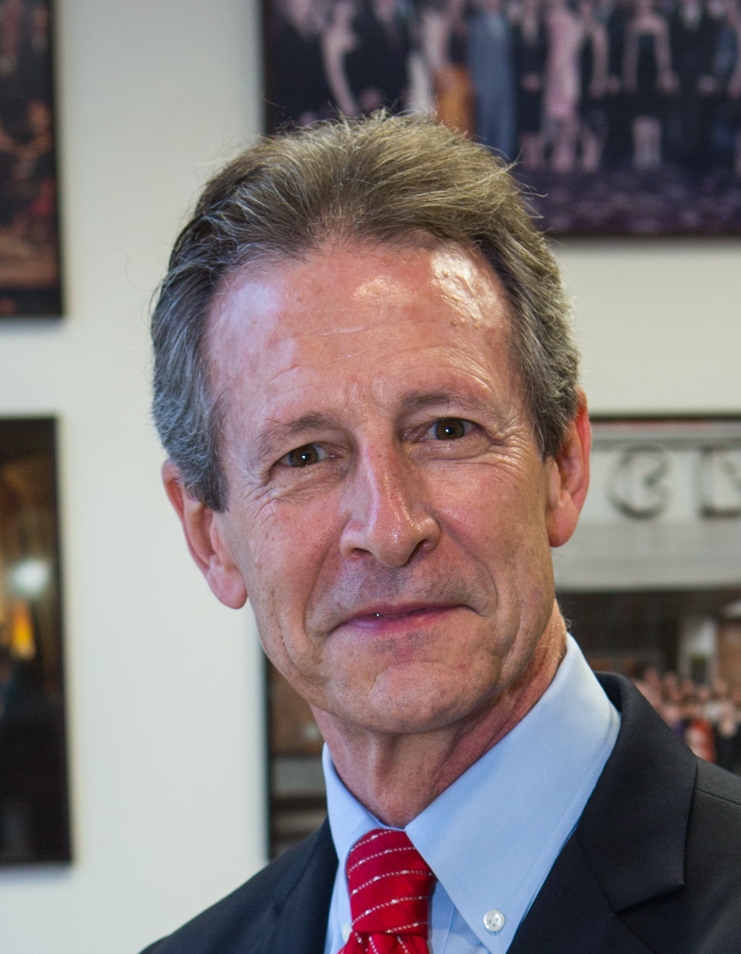RENÉE ANNE LOUPRETTE, ORGANIST
Thursday, June 9, 2022 | 7:30 PM
First United Methodist Church
Visser-Rowland Pipe Organ
NICOLAUS BRUHNS (1665-1697)
Praeludium in G Major
JOHANN ADAM REINCKEN (1643-1722)
Fugue in G minor
MARIN MARAIS (1656-1728)
Transcribed for organ by Renée Anne Louprette
Alcyone, Suite des Airs à Joüer
- Ouverture
- Marche pour les Bergers et le Bergères
- Menuet pour les Bergers et les Bergères
- Deuxième Menuet pour les mêmes
- Bourée pour les Bergers et les Bergères
- Prélude de l’Acte Troisième
- Chaconne pour les Tritons
JOHANN SEBASTIAN BACH (1685-1750)
Passacaglia, BWV 582
INTERMISSION
J.S. BACH
Chorales from Clavierübung III
- Kyrie, Gott heiliger Geist, BWV 671
- Christ unser Herr zum Jordan kam, BWV 685
JOHANNES BRAHMS (1833-1897)
Choralvorspiel und Fuge über “O Traurigkeit, o Herzeleid”
DAVID HURD (b. 1950)
Introduction, Passacaglia, and Fugue on Windham
(World Premiere)
Audio or video recording of this recital, using any device, without prior written consent is strictly prohibited.
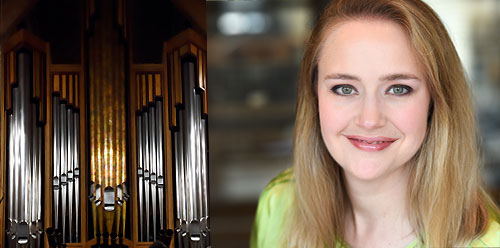
Learn before you listenJoin us at 6:45 p.m. for a pre-concert talk with George Stauffer, Distinguished Professor of Music History at Rutgers University’s Mason Gross School of the Arts. |
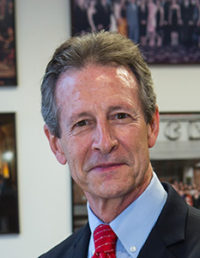 |
Sponsors

Phyllis & Lane Keller
This concert is generously supported by our concert sponsors and by donors to the Victoria Bach Festival’s Annual Fund. Many thanks to our generous supporters!
About the Artist
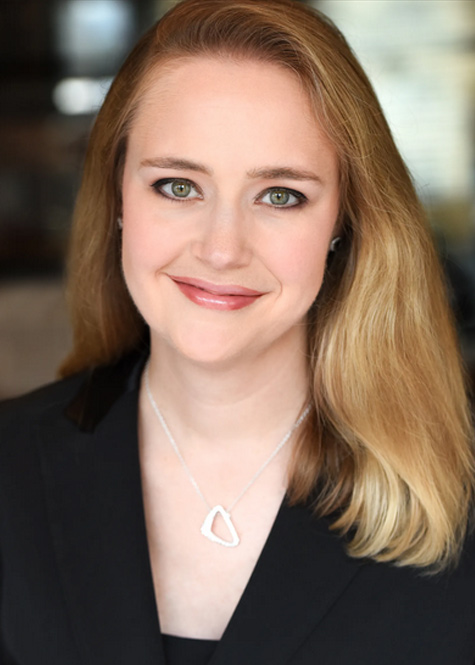
“She presented herself as a communicative player with no shortage of imaginative ideas, with fingers fully capable of backing them up, and with feet which are not just nimble on the pedals, but every bit as expressively articulate as her fingers.” (Michael Dervan, The Irish Times)
Hailed by The New York Times as “splendid,” and “one of New York’s finest organists,” Renée Anne Louprette has established an international career as organ recitalist, accompanist, conductor, and teacher. She is College Organist and Director of the Baroque Ensemble at Bard College in New York, and University Organist and Organ Program Coordinator at Mason Gross School of the Arts, Rutgers University in New Jersey. She has also served on the organ faculties of the Manhattan School of Music, The Hartt School of the University of Hartford, and the John J. Cali School of Music at Montclair State University.
Louprette has performed with the Mostly Mozart Festival Orchestra, Voices of Ascension, American Symphony Orchestra, New York Choral Society, and Piffaro, among other New York ensembles. In the 2018-19 season, Louprette made her solo organ debuts at Royal Festival Hall in London, Walt Disney Concert Hall in Los Angeles, the Cathedral of Notre Dame in Paris, and with the American Brass Quintet. She has concertized throughout North America, Europe, and Australia. She will return to Europe in the summer of 2021 for a series of recitals in Romania, Germany, and Scandinavia and will be a featured soloist in the 2021 Bard Music Festival, “Nadia Boulanger and her world.”
Louprette’s recording of J.S. Bach’s “Great Eighteen Chorales” on the Acis label was named a classical music Critics’ Choice 2014 by The New York Times. She released a recording of 20th-century French organ repertoire – “Une voix française – A French Voice” – in 2018 to critical acclaim, and a collaborative recording of original compositions and arrangements of traditional Irish repertoire with uilleann piper Ivan Goff in 2019, both recorded at the Church of St. Ignatius Loyola in New York City. Her latest recording of Bach’s Clavier-Übung III, recorded on the Craighead-Saunders organ of Christ Church, Rochester, New York, is due for release in 2022.
Renée Anne Louprette holds a Master’s degree in conducting from Bard College Conservatory, a Bachelor of Music degree summa cum laude in piano performance and Graduate Professional Diploma in organ performance from The Hartt School, University of Hartford. She was awarded a Premier Prix – mention très bien from the Conservatoire National de Région de Toulouse, France and a Diplôme Supérieur in organ performance from the Centre d’Études Supérieures de Musique et de Danse de Toulouse, studying with Michel Bouvard and Jan Willem Jansen and improvisation with Philippe Lefebvre.
Renée Anne Louprette is represented in North America exclusively by Phillip Truckenbrod Concert Artists, LLC.
North German composer Nicolaus Bruhns studied organ with the acclaimed organist Dieterich Buxtehude, who considered Bruhns to be one of his best students. Bruhns also studied the violin, and German composer Johann Mattheson (1681– 1764) reported that Bruhns sometimes played both instruments at the same time, accompanying himself on the violin by using his feet to play the bass lines on the organ pedals.
Bruhns died at the age of 31, and only a very small body of work has been found, including twelve vocal pieces and five organ pieces. The Praeludium in G is a prime example of the North German virtuoso organ toccata. Its pedal solos, dramatic use of tonal range, and many contrasting sections make it a colorful and challenging piece.
Johann Adam Reincken was a close friend of Dietrich Buxtehude, and along with Buxtehude, was one of the largest influences on the organ works of J.S. Bach. Reincken was born in the Netherlands to North German parents, studied in Hamburg as a teenager, and became organist of Hamburg’s famous Katharinenkirche. In addition to his church duties, he co-founded the Hamburg Opera and was involved in the city’s musical life.
In 1701, a young Johann Sebastian Bach walked 30 miles from Lunenburg to Hamburg to hear Reincken play the organ. Bach later transcribed several of Reincken’s instrumental pieces for keyboard. Very few of Reincken’s organ compositions survive. With its driving, repetitive theme, the effervescent Fugue in G Minor is an example of the style that J.S. Bach deeply admired.
In a contemporary example of an organist transcribing an instrumental work, Renée Anne Louprette presents her own transcription of a suite of elegant dances by French Baroque master Marin Marais. Marais was a French composer and viol player in the royal court of Versailles. Following the premiere of his opera Alcyone at the Théâtre du Palais Royal in Paris on February 18, 1706, Marais collected the most beautiful and popular tunes from the opera into four suites.
The libretto for Alcyone is based on the Metamorphoses, a Latin narrative poem written by the Roman poet Ovid. The story of the couple Ceyx and Alcyone is the origin of the term “halcyon days,” the seven peaceful, stormless winter days when Alcyone (transformed into a sea bird) lays her eggs and her father Aeolus, god of the winds, calms the wind and waves.
Marais’ opera incorporated fashionable themes of the time, including pastoral subjects and catchy dance tunes. Louprette’s selection from Marais’ suite includes a march, minuets, and a bourée for the shepherds and shepherdesses, and a chaconne for the mermen.
The passacaglia is a musical form consisting of a melody and variations in a somewhat slow triple time. Johann Sebastian Bach’s C minor Passacaglia is bewildering in its complexity, beauty, and ambition. Composed while Bach was his late teens or early twenties, it remains one of his most remarkable achievements.
The seemingly modest opening introduces the eight-bar ostinato (repeated melody), which transforms through a series of twenty intricate variations. Composer Robert Schumann described the variations of Bach’s C minor Passacaglia as “intertwined so ingeniously that one can never cease to be amazed.”
Between 1731 and 1741, when Bach was living in Leipzig, his Clavier-Übung keyboard anthology was published in four parts. The chorale preludes in Part III of the Clavier-Übung provided introductions to chorales for the congregation to sing.
Kyrie, Gott, heiliger Geist (Lord God, holy ghost) features the melody in the bass, and ends in a highly dramatic chromatic passage. Christ, unser Herr, zum Jordan kam (Christ our Lord came to the Jordan) refers to the Passion story and to baptism, comparing Jesus’s blood to the clear baptismal water.
Johannes Brahms wrote very few works for the organ. In 1856, one of his students asked him to compose an organ work as a remembrance. Brahms wrote a choral prelude to the tune “O Traurigkeit, o Herzeleid” (“O heartbreak, o sadness”), later adding a fugue on the same theme and publishing the entire piece in 1882. Brahms’ combination of beautiful contrapuntal lines and dramatic harmonies create an introspective and elegiac tone.
Tonight’s program features the world premiere of composer David Hurd‘s Introduction, Passacaglia, and Fugue on Windham. Hurd writes of the piece, “Introduction, Passacaglia, and Fugue is based upon Daniel Reed’s shape-note hymn tune Windham (1785) as it appears in The Sacred Harp at #38b. The Introduction opens with Reed’s melody and harmonization, somewhat embellished, and includes a canonic variation. The Passacaglia which follows consists of thirteen variations over the first and last phrases of Reed’s hymn tune presented as a ground bass in triple meter. A brief coda, similar to the close of the Introduction, provides transition to the Fugue, the theme of which is a chromatic elaboration of the first phrase of Reed’s hymn tune. Near the end of the Fugue, the entire melody of the Windham tune is finally stated.”
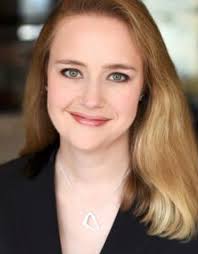
Hailed by The New York Times as “splendid,” and “one of New York’s finest organists,” Renée Anne Louprette has established an international career as organ recitalist, accompanist, conductor, and teacher. She is College Organist and Director of the Baroque Ensemble at Bard College in New York, and University Organist and Organ Program Coordinator at Mason Gross School of the Arts, Rutgers University in New Jersey. She has also served on the organ faculties of the Manhattan School of Music, The Hartt School of the University of Hartford, and the John J. Cali School of Music at Montclair State University.
Louprette has performed with the Mostly Mozart Festival Orchestra, Voices of Ascension, American Symphony Orchestra, New York Choral Society, and Piffaro, among other New York ensembles. In the 2018-19 season, Louprette made her solo organ debuts at Royal Festival Hall in London, Walt Disney Concert Hall in Los Angeles, the Cathedral of Notre Dame in Paris, and with the American Brass Quintet. She has concertized throughout North America, Europe, and Australia. She will return to Europe in the summer of 2021 for a series of recitals in Romania, Germany, and Scandinavia and will be a featured soloist in the 2021 Bard Music Festival, “Nadia Boulanger and her world.”
Louprette’s recording of J.S. Bach’s “Great Eighteen Chorales” on the Acis label was named a classical music Critics’ Choice 2014 by The New York Times. She released a recording of 20th-century French organ repertoire – “Une voix française – A French Voice” – in 2018 to critical acclaim, and a collaborative recording of original compositions and arrangements of traditional Irish repertoire with uilleann piper Ivan Goff in 2019, both recorded at the Church of St. Ignatius Loyola in New York City. Her latest recording of Bach’s Clavier-Übung III, recorded on the Craighead-Saunders organ of Christ Church, Rochester, New York, is due for release in 2022.
Renée Anne Louprette holds a Master’s degree in conducting from Bard College Conservatory, a Bachelor of Music degree summa cum laude in piano performance and Graduate Professional Diploma in organ performance from The Hartt School, University of Hartford. She was awarded a Premier Prix – mention très bien from the Conservatoire National de Région de Toulouse, France and a Diplôme Supérieur in organ performance from the Centre d’Études Supérieures de Musique et de Danse de Toulouse, studying with Michel Bouvard and Jan Willem Jansen and improvisation with Philippe Lefebvre.
Renée Anne Louprette is represented in North America exclusively by Phillip Truckenbrod Concert Artists, LLC.
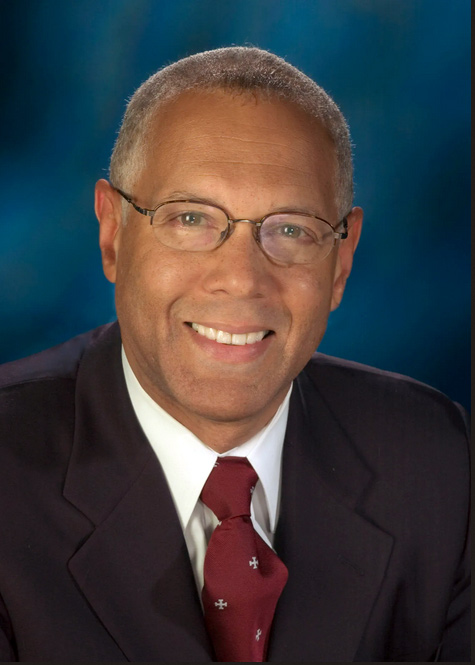
David Hurd has been organist and music director at The Church of Saint Mary the Virgin, New York City, since Spring 2016. He has previously served in other Manhattan churches including Trinity Church, The Church of the Intercession, Saint James Episcopal Church, All Saints Episcopal Church, and the Church of the Holy Apostles. He was Professor of Church Music and Organist at The General Theological Seminary for nearly four decades. He has also taught at Duke University, Yale University, The Manhattan School of Music, and Westminster Choir College. Educated principally at the Juilliard School, Oberlin College, and the University of North Carolina, Chapel Hill, his musical accomplishments have been recognized with four honorary doctorates and various other awards including first prizes both in organ playing and in improvisation at the 1977 International Congress of Organists, and the 2010 Distinguished Composer Award of the American Guild of Organists. He has composed extensively, particularly in the areas of choral and organ music. His commissioned works have received New York premier performances in such venues as Alice Tully Hall, Avery Fisher Hall, Carnegie Hall, The Cathedral Church of Saint John the Divine, and Trinity Church, Wall Street. Among his compositions also are more than eighty published hymn tunes, several of which appear in major denominational hymnals. He is represented as a concert organist by Phillip Truckenbrod Concert Artists.
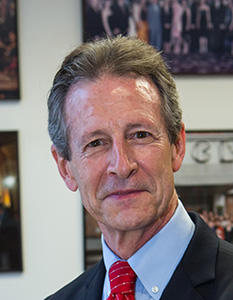 George B. Stauffer is distinguished professor of musicology at Rutgers University, and former dean of the Mason Gross School of the Arts. He is known internationally as a scholar, performer, and writer on the music and culture of the Baroque Era and the life and works of J.S. Bach in particular. Educated at Dartmouth College, Bryn Mawr College, and Columbia University, he has published several widely cited and authoritative books. He has also contributed to The New Grove Dictionary of Music and Musicians, Collier’s Encyclopedia, Early Music, Bach-Jahrbuch, and many other American, European, and Asian publications. As a speaker, he as lectured at Harvard University, Yale University, University of Leipzig, National Sun Yat-sen University, and many other schools. As a performer, Stauffer studied organ with John Weaver and Vernon de Tar (Juilliard School). He served as university organist and chapel music director at Columbia University, where he appeared frequently in concert.
George B. Stauffer is distinguished professor of musicology at Rutgers University, and former dean of the Mason Gross School of the Arts. He is known internationally as a scholar, performer, and writer on the music and culture of the Baroque Era and the life and works of J.S. Bach in particular. Educated at Dartmouth College, Bryn Mawr College, and Columbia University, he has published several widely cited and authoritative books. He has also contributed to The New Grove Dictionary of Music and Musicians, Collier’s Encyclopedia, Early Music, Bach-Jahrbuch, and many other American, European, and Asian publications. As a speaker, he as lectured at Harvard University, Yale University, University of Leipzig, National Sun Yat-sen University, and many other schools. As a performer, Stauffer studied organ with John Weaver and Vernon de Tar (Juilliard School). He served as university organist and chapel music director at Columbia University, where he appeared frequently in concert.
PROGRAM NOTES: Reinventions, Intertwined
North German composer Nicolaus Bruhns studied organ with the acclaimed organist Dieterich Buxtehude, who considered Bruhns to be one of his best students. Bruhns also studied the violin, and German composer Johann Mattheson (1681– 1764) reported that Bruhns sometimes played both instruments at the same time, accompanying himself on the violin by using his feet to play the bass lines on the organ pedals.
Bruhns died at the age of 31, and only a very small body of work has been found, including twelve vocal pieces and five organ pieces. The Praeludium in G is a prime example of the North German virtuoso organ toccata. Its pedal solos, dramatic use of tonal range, and many contrasting sections make it a colorful and challenging piece.
Johann Adam Reincken was a close friend of Dietrich Buxtehude, and along with Buxtehude, was one of the largest influences on the organ works of J.S. Bach. Reincken was born in the Netherlands to North German parents, studied in Hamburg as a teenager, and became organist of Hamburg’s famous Katharinenkirche. In addition to his church duties, he co-founded the Hamburg Opera and was involved in the city’s musical life.
In 1701, a young Johann Sebastian Bach walked 30 miles from Lunenburg to Hamburg to hear Reincken play the organ. Bach later transcribed several of Reincken’s instrumental pieces for keyboard. Very few of Reincken’s organ compositions survive. With its driving, repetitive theme, the effervescent Fugue in G Minor is an example of the style that J.S. Bach deeply admired.
In a contemporary example of an organist transcribing an instrumental work, Renée Anne Louprette presents her own transcription of a suite of elegant dances by French Baroque master Marin Marais. Marais was a French composer and viol player in the royal court of Versailles. Following the premiere of his opera Alcyone at the Théâtre du Palais Royal in Paris on February 18, 1706, Marais collected the most beautiful and popular tunes from the opera into four suites.
The libretto for Alcyone is based on the Metamorphoses, a Latin narrative poem written by the Roman poet Ovid. The story of the couple Ceyx and Alcyone is the origin of the term “halcyon days,” the seven peaceful, stormless winter days when Alcyone (transformed into a sea bird) lays her eggs and her father Aeolus, god of the winds, calms the wind and waves.
Marais’ opera incorporated fashionable themes of the time, including pastoral subjects and catchy dance tunes. Louprette’s selection from Marais’ suite includes a march, minuets, and a bourée for the shepherds and shepherdesses, and a chaconne for the mermen.
The passacaglia is a musical form consisting of a melody and variations in a somewhat slow triple time. Johann Sebastian Bach’s C minor Passacaglia is bewildering in its complexity, beauty, and ambition. Composed while Bach was his late teens or early twenties, it remains one of his most remarkable achievements.
The seemingly modest opening introduces the eight-bar ostinato (repeated melody), which transforms through a series of twenty intricate variations. Composer Robert Schumann described the variations of Bach’s C minor Passacaglia as “intertwined so ingeniously that one can never cease to be amazed.”
Between 1731 and 1741, when Bach was living in Leipzig, his Clavier-Übung keyboard anthology was published in four parts. The chorale preludes in Part III of the Clavier-Übung provided introductions to chorales for the congregation to sing.
Kyrie, Gott, heiliger Geist (Lord God, holy ghost) features the melody in the bass, and ends in a highly dramatic chromatic passage. Christ, unser Herr, zum Jordan kam (Christ our Lord came to the Jordan) refers to the Passion story and to baptism, comparing Jesus’s blood to the clear baptismal water.
Johannes Brahms wrote very few works for the organ. In 1856, one of his students asked him to compose an organ work as a remembrance. Brahms wrote a choral prelude to the tune “O Traurigkeit, o Herzeleid” (“O heartbreak, o sadness”), later adding a fugue on the same theme and publishing the entire piece in 1882. Brahms’ combination of beautiful contrapuntal lines and dramatic harmonies create an introspective and elegiac tone.
Tonight’s program features the world premiere of composer David Hurd‘s Introduction, Passacaglia, and Fugue on Windham. Hurd writes of the piece, “Introduction, Passacaglia, and Fugue is based upon Daniel Reed’s shape-note hymn tune Windham (1785) as it appears in The Sacred Harp at #38b. The Introduction opens with Reed’s melody and harmonization, somewhat embellished, and includes a canonic variation. The Passacaglia which follows consists of thirteen variations over the first and last phrases of Reed’s hymn tune presented as a ground bass in triple meter. A brief coda, similar to the close of the Introduction, provides transition to the Fugue, the theme of which is a chromatic elaboration of the first phrase of Reed’s hymn tune. Near the end of the Fugue, the entire melody of the Windham tune is finally stated.”
About the Composer

David Hurd has been organist and music director at The Church of Saint Mary the Virgin, New York City, since Spring 2016. He has previously served in other Manhattan churches including Trinity Church, The Church of the Intercession, Saint James Episcopal Church, All Saints Episcopal Church, and the Church of the Holy Apostles. He was Professor of Church Music and Organist at The General Theological Seminary for nearly four decades. He has also taught at Duke University, Yale University, The Manhattan School of Music, and Westminster Choir College. Educated principally at the Juilliard School, Oberlin College, and the University of North Carolina, Chapel Hill, his musical accomplishments have been recognized with four honorary doctorates and various other awards including first prizes both in organ playing and in improvisation at the 1977 International Congress of Organists, and the 2010 Distinguished Composer Award of the American Guild of Organists. He has composed extensively, particularly in the areas of choral and organ music. His commissioned works have received New York premier performances in such venues as Alice Tully Hall, Avery Fisher Hall, Carnegie Hall, The Cathedral Church of Saint John the Divine, and Trinity Church, Wall Street. Among his compositions also are more than eighty published hymn tunes, several of which appear in major denominational hymnals. He is represented as a concert organist by Phillip Truckenbrod Concert Artists.
About the Speaker
